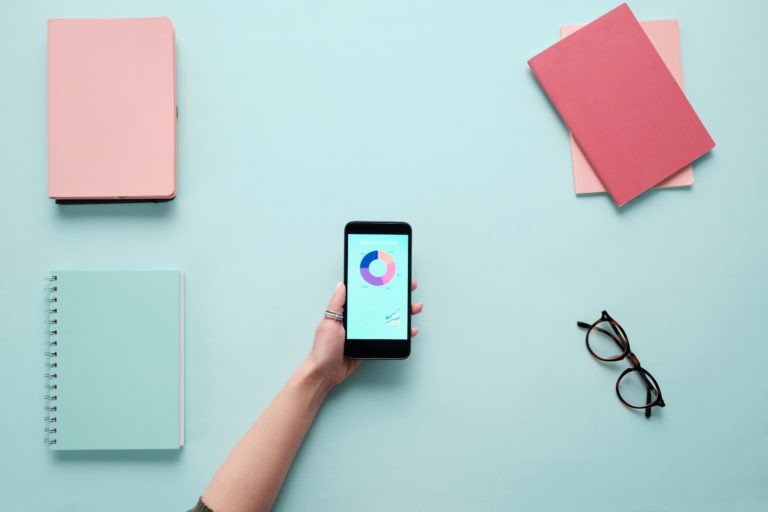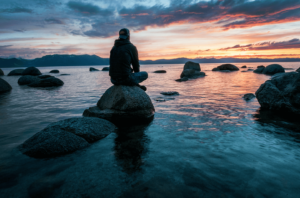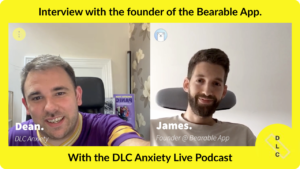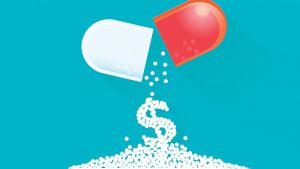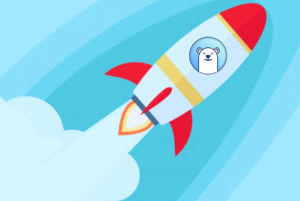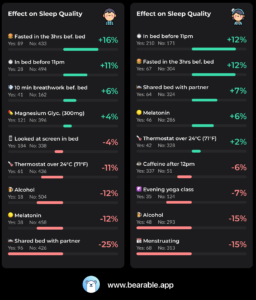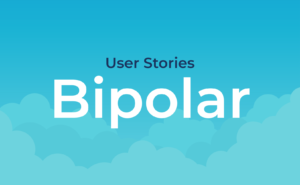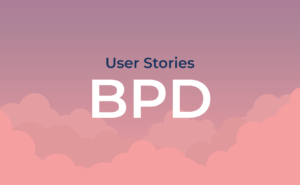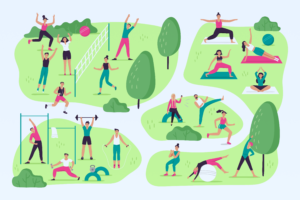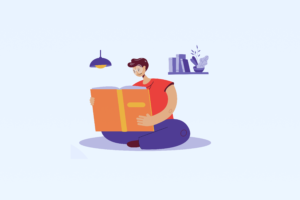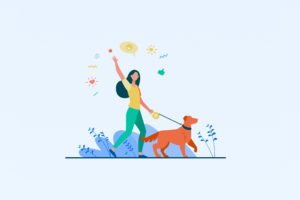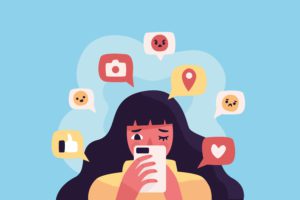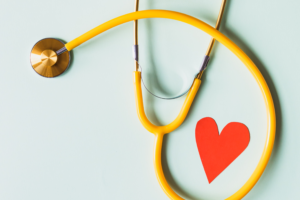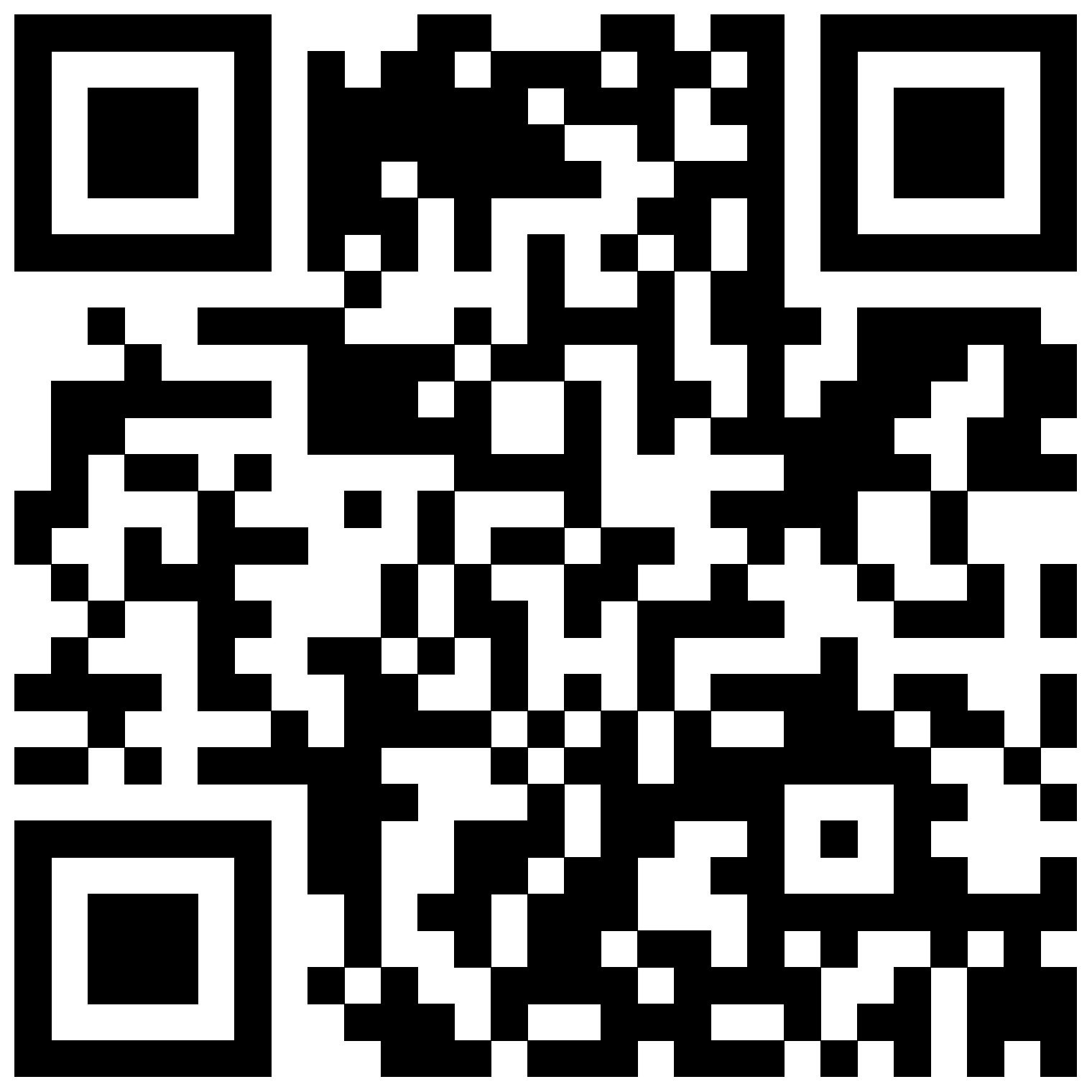I think most of us have thought about quitting social media, right?
I often end up blaming social media for losing whole evenings or weekends. Periods of time that I tell myself I could have been practising Spanish or taking an online course.
As a Reddit user, I’m also familiar with the r/NoSurf community. A collection of people that aspire to spend less time online to max out their productivity.
Admittedly, I sometimes wonder if maxing-out productivity is just another unhealthy way of treating anxiety. Maybe some of those people need the warm embrace of YouTube or the excitement and drama of their Uncle’s Facebook comments section?
If you’re anything like me, then social media may also be an inescapable part of your career. Meaning you’re doomed to an eternity of scapegoating TikTok for all of your problems.
I was interested to finally put this to the test and see if a week without social media would help transform me into a more productive, less anxious person.





 A graph showing the positive impact that no social media had on the amount of reading I did.
A graph showing the positive impact that no social media had on the amount of reading I did.
 A graph that shows the positive impact that no social media had on the time I spent practising the guitar.
A graph that shows the positive impact that no social media had on the time I spent practising the guitar.
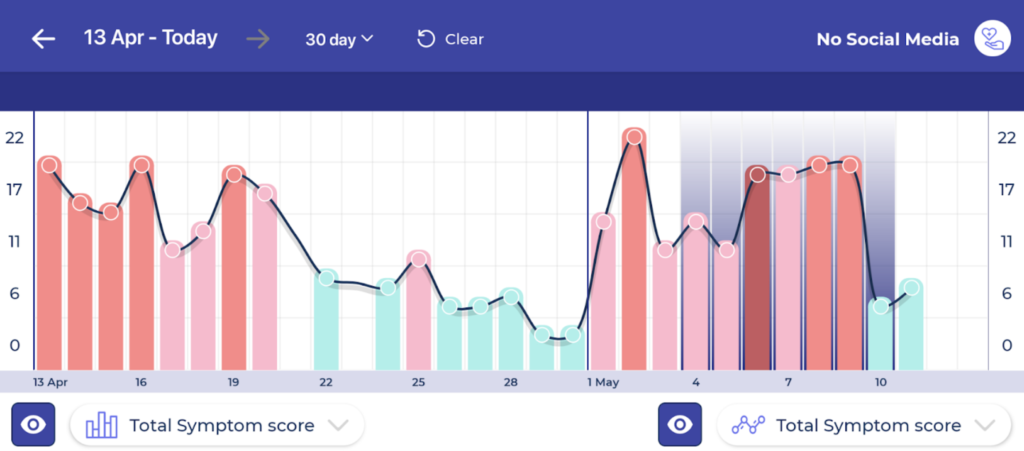
Is social media bad for our health?
This is a question that I think most people would answer with a resounding; YES! Certainly, I think most people are aware that it can have a negative impact on their health. Not that this stops any of us from using social media an average of 28 times per day.What are the potential negative effects?
- It reduces your Self Esteem due to constantly comparing yourself to others.
- It can trigger feelings of Loneliness due to seeing other people socialising (aka FOMO)
- It impacts Sleep as a result of blue light and an inability to put down our phones
- Attention Span and Productivity are impacted by the desire to constantly check our phones
- It creates feelings of Stress, Anxiety, or Depression
What are the positives of social media?
- Connecting with communities of people we wouldn’t otherwise have access to
- Access to an incredible amount of information, news, knowledge, etc.
- Promotion tools for people and businesses
- Social platforms have launched careers for millions of creators and influencers
- Entertainment in every possible form
So why is it so hard to quit social media?
As with anything, doing something in moderation is probably the better route vs. forcing yourself to quit something that isn’t entirely bad for you. I think many of us just struggle with the moderation part and that’s possibly the issue behind the issue. Let’s take a quick look at why that’s so difficult in the first place. Social platforms are typically paid for by advertisers, not users. It, therefore, benefits companies like Facebook to make their platforms addictive, to create opportunities to reward you and to use psychological techniques to alter your behaviour. By wiring your brain so that social media use becomes an unconscious habit, social platforms create more opportunities for advertisers to reach you. That means more money in the pockets of the social media platform owners. By quitting for a week I hoped I might be able to begin to train my brain out of some of these habits. As well as making Mark Zuckerberg a tiny bit poorer.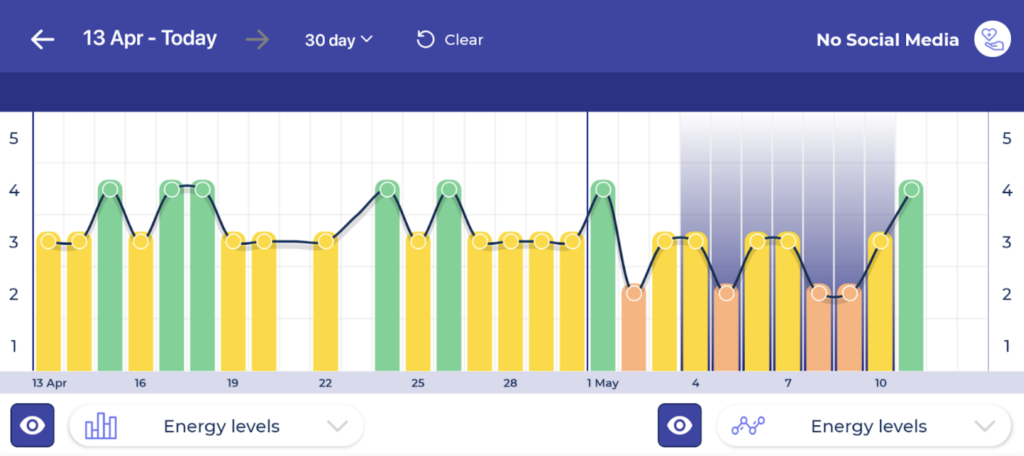
Why I quit social media for a week
Social media mostly plays a positive role in helping to distract me from my anxiety. I live with symptoms of Generalised Anxiety, Social Anxiety, Depression, Body Dysmorphia, and Insomnia. I’m also very aware of the fact that I use social media as a way to distract myself from symptoms of these conditions. For example, it’s easy for me to distract my mind from Anxious or Catastrophic thoughts by rewatching SNL compilations on YouTube. In fact, it’s pretty common for people with Anxiety to re-watch the same things over and over as a form of self-care. I also sometimes watch other people do things that I don’t have access to. For example, during lock-down, I followed a lot of influencers that live abroad because I missed travelling. Some people even take this to the extreme of watching other people clean their homes when they don’t have the motivation to clean their own. However, using social media as a crutch for Anxiety never really felt that healthy or positive. A lot of my Anxiety is triggered by feelings of doubt about my work and how I’m perceived by colleagues. I often blame my Anxiety for not having achieved more or for distracting me from my goals. This was an opportunity to try to change that.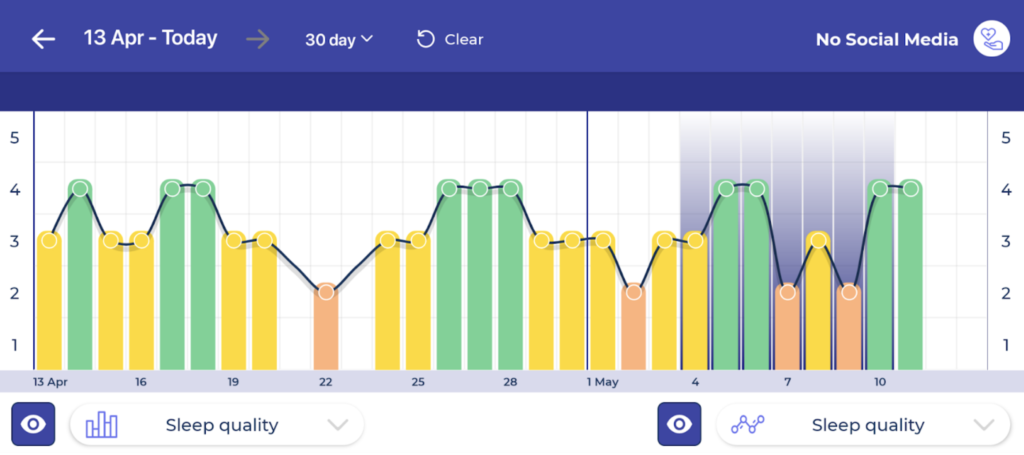
Quitting Social Media
Day One: I Struggled a bit to fight the urge to mindlessly open social apps. I ended up gaming instead – not a great start. The withdrawal was stronger than I anticipated. Whenever I used my phone I had to actively tell myself not to click on Reddit and YouTube. Day Two: I read more news and played more guitar than usual. I still tried to distract myself from my mind/thoughts only now it was with different methods. I struggled with binge eating, a symptom of my disordered eating and BDD. Day Three: I felt exhausted and I overslept. Social media is usually part of my morning routine and helps me ease into the day. I probably just need to go to bed earlier instead of finding other late-night distractions. I meditated at lunchtime instead of scrolling through Reddit. I went to bed earlier and slept well that night. Day Four & Five: I was a bit angrier than usual and felt a bit more frustrated by things. I ended up binge-watching a series on Amazon to distract myself from any negative thoughts. This ended up disrupting my sleep for two nights. I struggled with binge eating on both of these days. Day Six: I woke up and tried to be productive. Wrote a list of things to do for the weekend. Things I’d been putting off. I meditated and went for a long walk. However, I also binge ate all day again. Day Seven: I continued to binge eat which was concerning to me. I also made an effort to focus on doing the things I said I would do when I quit social media. I read more, practised Spanish, made some music, edited some photographs, and had a generally productive day.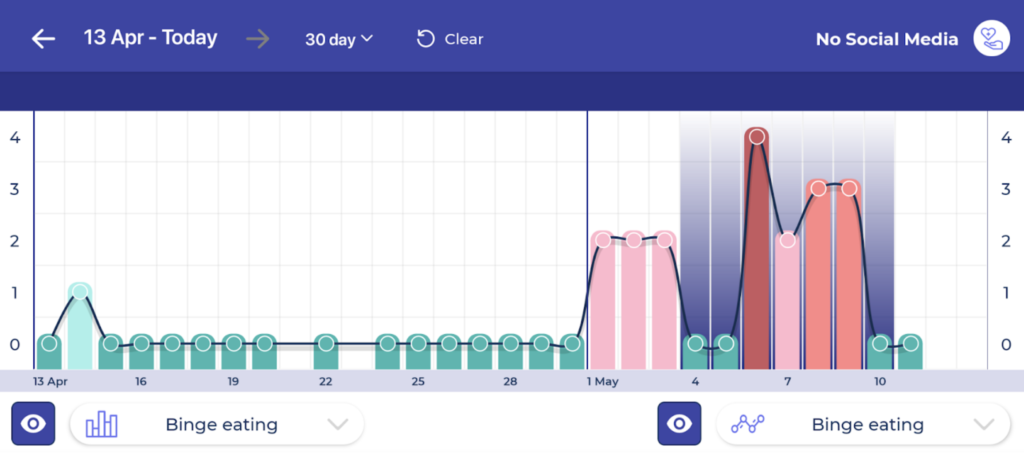
What does the data tell us about the impact on my health?
My Average Mood Score dropped by 8% My Average Energy Levels dropped by 22% My Average Sleep Quality improved by 1% My Average Sleep Quantity improved by 3% My Total Symptom Score increased by 36%What does the data tell us about the impact on my symptoms?
- Binge Eating increased by 400%
- Biting my Nails increased by 173%
- Feeling Joyless increased by 100%
- Avoiding Communication and Activities increased by 60%
- Nervous energy increased by 33%
- Apathy increased by 24%
- Tiredness increased by 23%
- Catastrophic thoughts decreased by 14%
- Questioning past conversations decreased by 81%
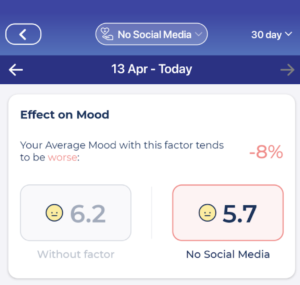
What are the Benefits of quitting social media?
For me, there were very few benefits. The main thing I gained from the experience was a better perspective on my Anxiety. It revealed to me that I’m sometimes overly reliant on social media to help manage my symptoms. Far more than I had realised at the beginning of this experiment. Without the distraction of social media, I was faced with the prospect of having to deal with my anxious thoughts and symptoms head-on. Essentially, quitting social media made clear to me that I need to do more to address the root causes of my Anxiety. As someone that’s spent a lot of their life downplaying the severity of symptoms of their mental health. This experience was a little bit of a wake-up call to take things like CBT and Meditation more seriously as Anxiety management techniques. Admittedly, some of the results listed above were undoubtedly impacted by a flare-up in binge eating. This typically makes me more irritable, disrupts my sleep, and has a generally negative effect on my symptoms. Overall, quitting social media had a more significant impact on my health than I ever would have imagined.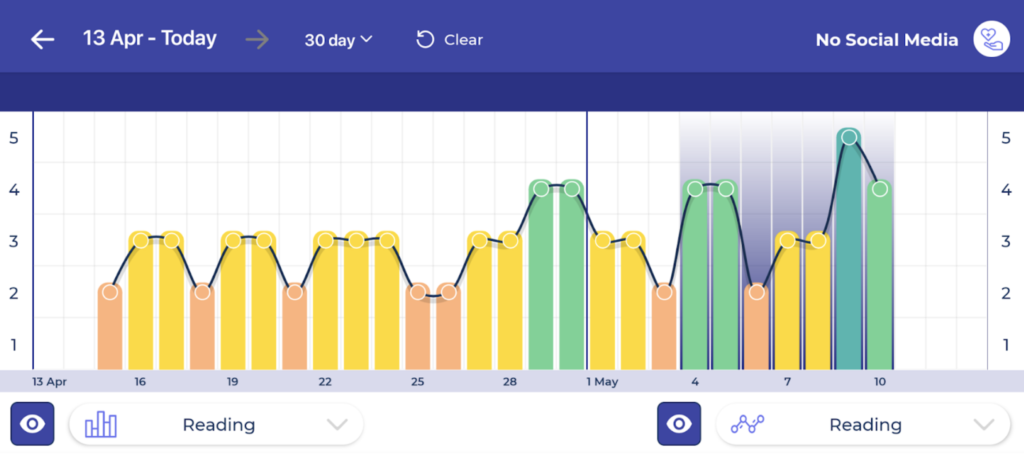 A graph showing the positive impact that no social media had on the amount of reading I did.
A graph showing the positive impact that no social media had on the amount of reading I did.
Does Quitting Social Media Make You More Productive?
During the seven days that I quit social media, I:- Wrote and recorded more music than I would normally
- Began reading more before bed
- Started an online course that I had been putting off
- Meditated more than usual
- Read more news and felt generally better informed about current events
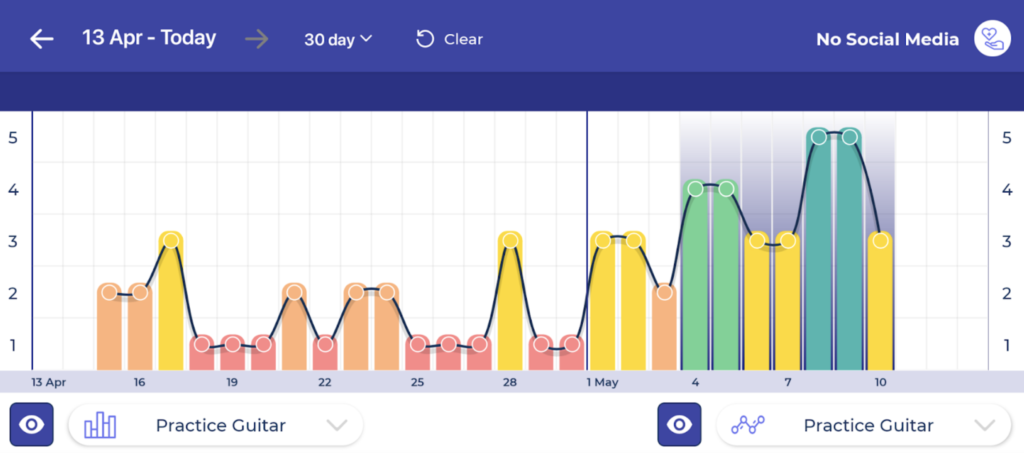 A graph that shows the positive impact that no social media had on the time I spent practising the guitar.
A graph that shows the positive impact that no social media had on the time I spent practising the guitar.

